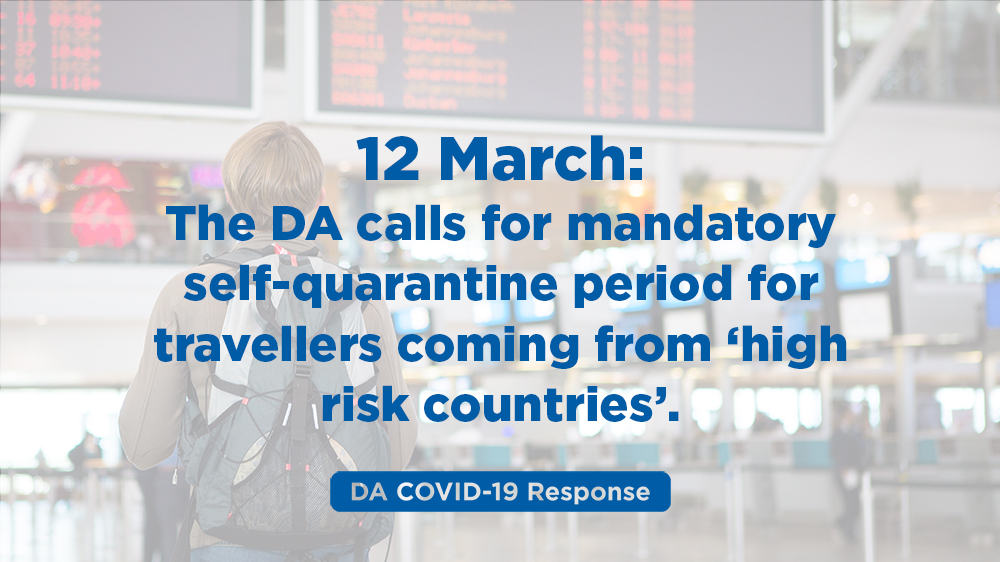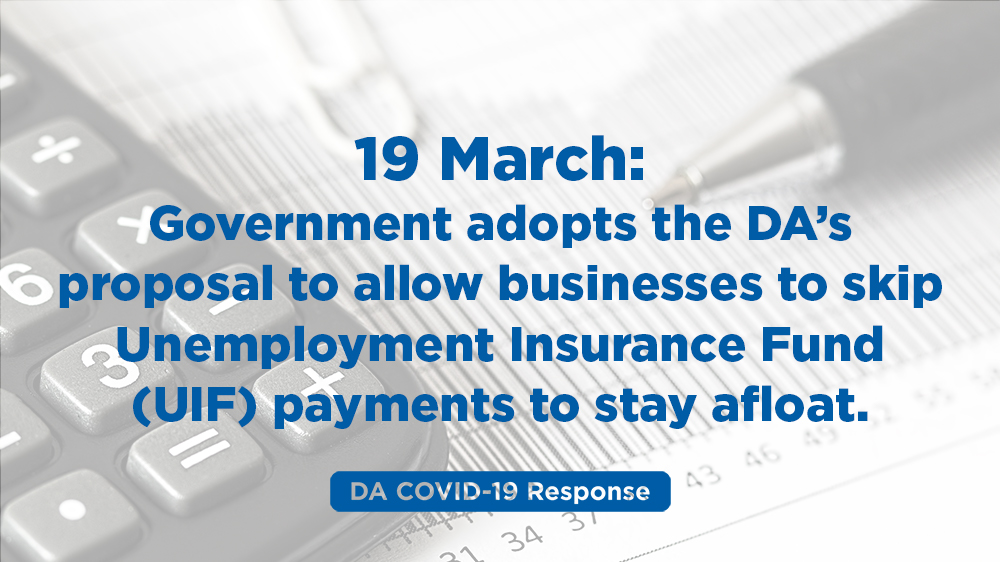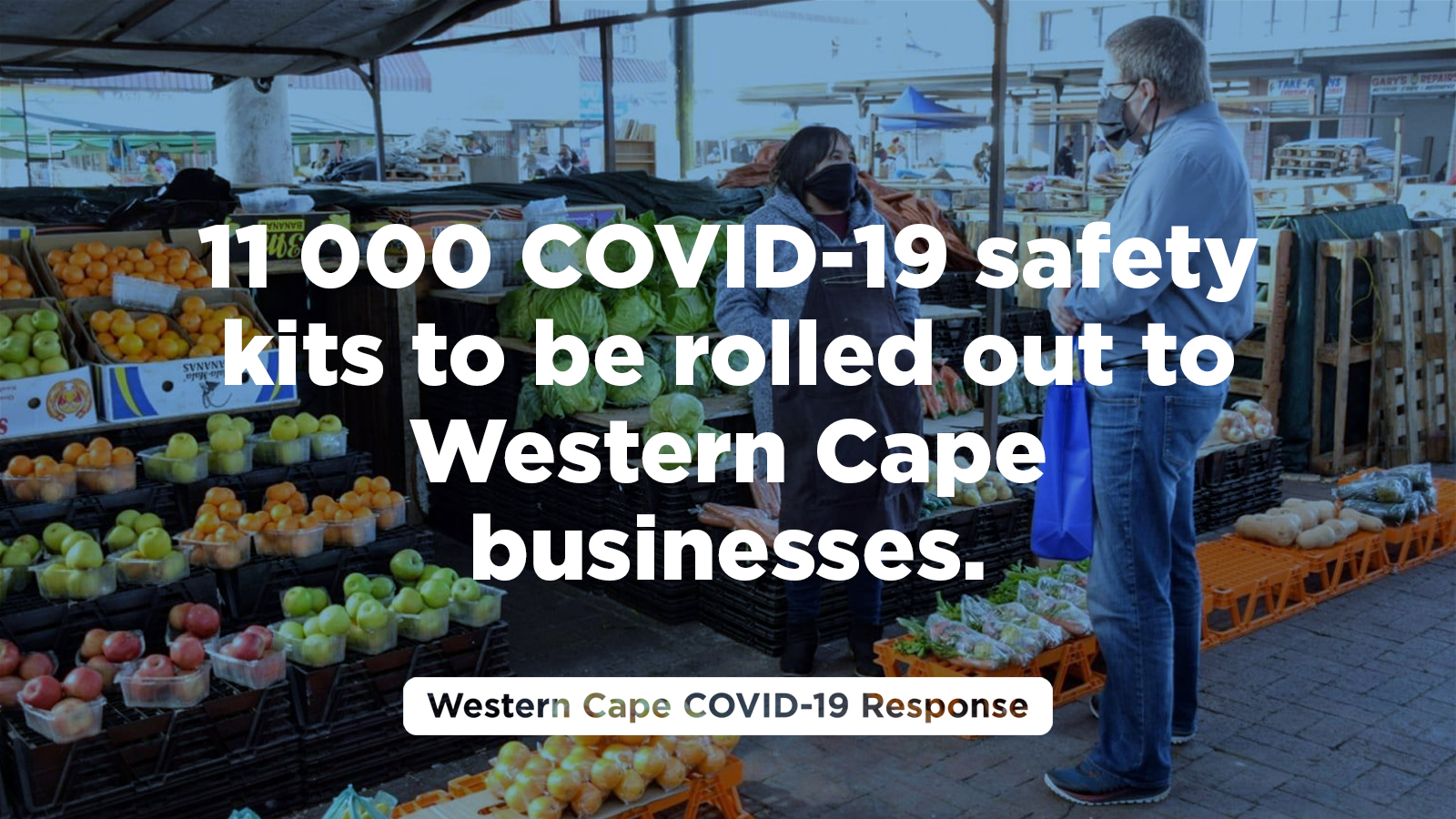South Africa has been in continued economic lockdown (to various degrees) since midnight on Thursday, 26 March 2020. During this time, the DA has been responding to the evidence at hand to fight for what’s best for your community, working hard to protect both lives and livelihoods.
Here are the milestones in our fight to defeat the coronavirus and protect your livelihood since the beginning of March.
5 March: The National Institute for Communicable Diseases (NICD) confirms that a South African who returned from Italy has tested positive for COVID-19.
11 March: The World Health Organization (WHO) declares the coronavirus outbreak a pandemic that will likely spread throughout the world.

15 March: The DA joins hands with government to help defeat COVID-19, as SA is declared a National State of Disaster with internal coronavirus transmissions.
17 March: The DA outlines proposals to assist government in fighting COVID-19, which include loan repayment holidays, among others.

31 March: Government adopts the DA’s proposal to suspend import duty on life-saving face masks.

09 April: The DA calls on the Department of Social Development to probe ANC councillors allegedly hijacking food parcel distribution for electioneering
13 April: The DA proposes Smart Lockdown to supplement government’s coronavirus response effort, while protecting the South African economy and the livelihoods which depend on it.
15 April: The DA fights for SASSA offices to reopen and works to prevent government from forcing NPOs and private individuals to apply for permits to provide food relief.
15 April: The DA donates R1.5 million to the Solidarity Fund! (Independently administrated by Old Mutual, the money will be spent on more protective gear and better medical infrastructure.)
21 April: After enormous pressure from the DA, government promises to allow SARS to help UIF with the Ters relief benefit to ensure that more families have food on the table.
23 April: The DA’s sustainable and flexible Smart Lockdown Model, to help boost the coronavirus response effort and protect the economy, helps inspire aspects of government’s risk-adjusted lockdown plan.

14 May: Just after the DA files papers challenging the ban on e-commerce, the pressure sees government reversing their irrational ban, announcing that all products can be sold online.
14 May: The DA’s legal challenges to the night curfew and the restriction on exercise hours help see these irrational restrictions lifted in Lockdown Level 3. (We will pursue them again in the event that South Africa goes back to Level 4 and these irrational restrictions resurface.)

29 May: The DA wins first round in protracted court battle around legitimacy of COVID-19 command council as Constitutional Court agrees to consider hearing the case directly.
1 June: The DA’s challenge to the discriminatory use of coronavirus emergency relief funds is heard on 1 June in the Pretoria High Court. (It isn’t right for government to exclude citizens from this relief based on their, or their employer’s race and other arbitrary criteria!)
3 June: The DA proposes an immediate plan to recover the Tourism sector, which supports 1.2 million livelihoods.
18 June: With desperate South Africans still not receiving their life-saving R350-COVID-19 grant, the DA in Parliament seeks urgent answers on where the R50bn in social relief funding has gone.

24 June: In court, the DA successfully squashes Minister Zulu’s latest food distribution restrictions that would have blocked food relief as organisations became mired in paperwork.
30 June: In the interest of transparency, the Minister of Trade, Industry and Competition buckles under DA pressure and agrees to release National Lotteries Commission COVID-19 Relief Fund beneficiaries.
30 June: The DA calls for reopening of Sport, Arts and Culture Relief Fund applications and transparency on remaining funds. (From what the minister has disclosed, there should still be funds of up to R110 million available.)
1 July: After our application for direct access to the Constitutional Court is denied, the DA pledges to make our way through court system to challenge provisions of the Disaster Management Act that allow decisions to be made in secret, without accountability, and without time-limits.




















